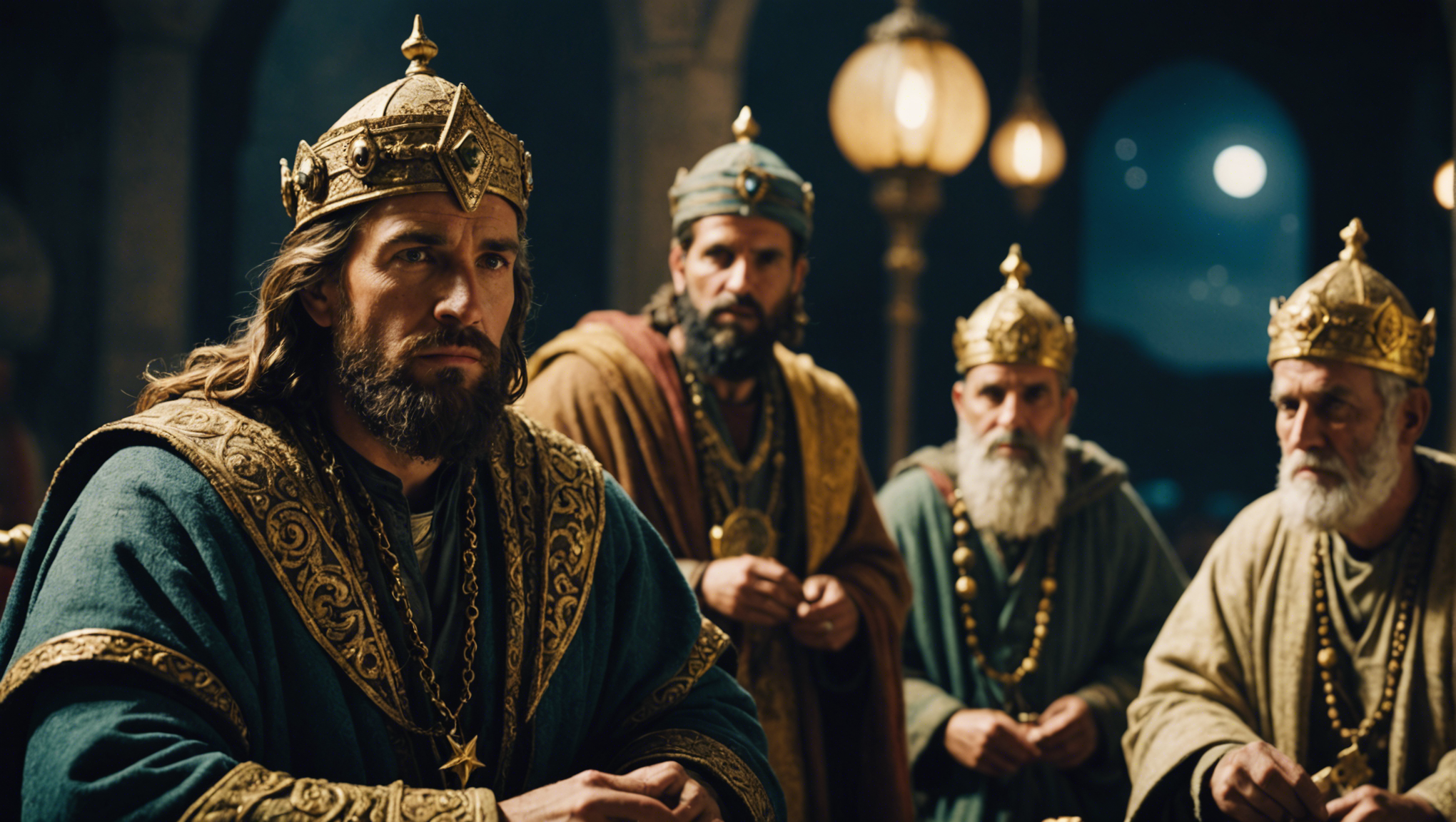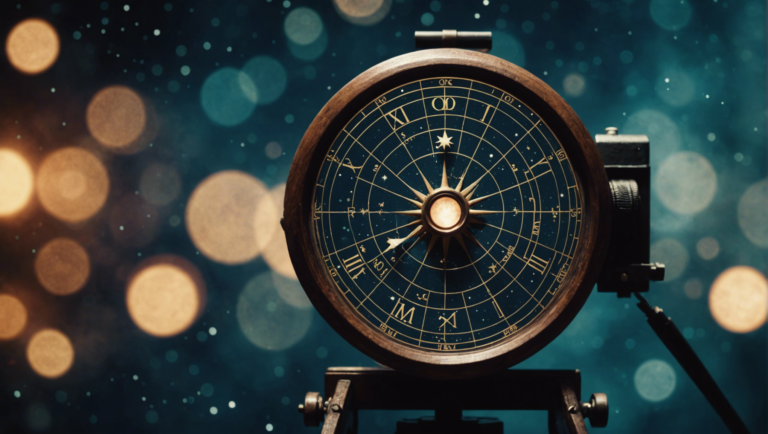Were The Wise Men Astrologers
Were the Wise Men Astrologers? Understanding Their Historical and Astronomical Significance
The question of whether the wise men, often referred to as Magi, were astrologers has intrigued scholars, theologians, and historians for centuries. This exploration seeks to shed light on their historical and astronomical significance, weaving together evidence from ancient texts, archaeological findings, and astronomical analysis to offer a comprehensive understanding of these enigmatic figures.
Unraveling the Identity of the Magi
The Magi’s origins are deeply rooted in ancient history, with accounts placing them in a region that corresponds to modern-day Iran. Within this realm, the Magi were primarily known as a priesthood among the Medes, possessing profound religious and astrological knowledge. Their expertise was not limited to religious rites; it extended to the study of the stars, which was considered a divine language in many ancient cultures. This dual role as religious leaders and students of the heavens positions them uniquely at the intersection of spirituality and science, leading to speculation that their journey to Bethlehem was guided by astronomical phenomena as much as religious prophecy.
Decoding the Astronomical Significance
The star of Bethlehem, described in biblical accounts as guiding the Magi to the birthplace of Jesus, has been a focal point of debate. Was it a real astronomical event? And if so, what nature of event was it? Several theories have been proposed, ranging from a conjunction of planets to a comet or even a supernova. Modern astronomical software has allowed scholars to backtrack the night sky as it would have appeared two millennia ago, revealing that a notable conjunction of Jupiter and Saturn occurred around this time. Such events would not have gone unnoticed by the skilled observers that the Magi were, lending credibility to the theory that they were indeed astrologers following celestial signs.
The Historical Impact of the Magi’s Journey
The journey of the Magi is significant not only for its biblical implications but also for its symbolic representation of the cross-cultural exchanges in the ancient world. The Magi, coming from the East, signify the spread of knowledge and ideas across civilizations. Their role as astrologers highlights the universal human interest in understanding the cosmos, a quest that transcends cultural and religious boundaries. This story, therefore, sheds light on the interconnectedness of the ancient world, where astronomical phenomena could guide the actions of individuals across great distances.
Reevaluating the Magi in Contemporary Context
In the contemporary world, the question of whether the wise men were astrologers prompts a broader reflection on the relationship between faith and science. Throughout history, the two have been intertwined, with astronomical observations often serving spiritual purposes. The Magi’s story encapsulates this blend, suggesting that the pursuit of knowledge — whether through the lens of scripture or the stars — has always been a pivotal aspect of human experience.
Insights from Scholarly Research and Analysis
Ongoing research into the historical and archaeological contexts of the Magi continues to provide fascinating insights into their identity and the era they inhabited. Studies of ancient texts, coupled with archaeological discoveries, paint a picture of the Magi as figures of significant influence, both spiritually and intellectually. Their recognition across various cultures and epochs as wise men and, potentially, astrologers, underscores the enduring human fascination with the cosmos and the mysteries it holds.
This exploration reveals that the Magi, with their deep-rooted connections to both the religious and astronomical spheres, likely embody the characteristics of what we would today consider astrologers. Their journey, guided by celestial signs, not only marks a pivotal moment in the biblical narrative but also reflects the broader human endeavor to understand the universe and our place within it. Whether through the lens of faith or the scientific study of the stars, their legacy continues to inspire a sense of wonder and a quest for knowledge that resonates across ages.
Astrology in Ancient Civilizations: Tracing the Roots of the Wise Men’s Knowledge
Astrology’s Role in Ancient Knowledge Systems
Astrology, an ancient practice that intertwines celestial events with terrestrial happenings, has been a cornerstone of knowledge and wisdom in many civilizations across the world. The inquiry into whether the wise men, often referred to in historical and religious texts, were indeed astrologers, opens up a fascinating exploration of ancient wisdom and its sources. This exploration not only sheds light on the depth of astrological understanding but also on the cultural significance of these practices in shaping societies.
The Astronomical Precision of Babylon
One cannot delve into the roots of astrological expertise without acknowledging the remarkable contributions of the Babylonians. It was here that one of the earliest and most sophisticated forms of astrology were developed. This civilization meticulously recorded planetary movements and celestial events, deducing patterns that they believed influenced earthly occurrences. Their elaborate system provided not just a cosmological calendar but also a predictive tool for agriculture, weather, and societal trends. The wise men of this era, often serving as priests and scholars, wielded this knowledge with an authority that underscored their role as intermediaries between the heavens and earth.
Egyptian Astrology and the Cosmic Order
Similarly, in Egypt, astrology was intertwined with the fabric of society, where the cosmos was believed to be a reflection of the divine order on earth. The alignment of pyramids and temples with celestial bodies exemplifies the Egyptians’ advanced understanding of astronomy and its spiritual significance. The wise men in this context, revered as keepers of cosmic knowledge, were pivotal in advising pharaohs and priests. Their interpretations of stellar configurations influenced everything from architectural designs to religious ceremonies, embedding astrology deeply within the cultural and spiritual life of ancient Egypt.
The Philosophers’ Sky: Greece and the Hellenistic World
The philosophical traditions of Greece and the Hellenistic world further expanded the scope of astrology, integrating it with emerging philosophical inquiries about fate, ethics, and the nature of the soul. The wise men of this tradition, including figures like Ptolemy, enriched astrological knowledge by framing it within a more structured philosophical and scientific paradigm. Their work laid the groundwork for the zodiac system and horoscopic astrology, which focuses on the casting of individual charts. This period marked a significant evolution in the role of astrology from a general predictive and interpretative practice to a more personalized form of guidance.
The Silk Road: A Conduit of Astrological Exchange
The Silk Road served as a crucial channel for the exchange of astrological knowledge between the East and West. Through this network, the wise men of different lands could share observations, techniques, and interpretations, enriching the astrological traditions of all civilizations involved. Indian Vedic astrology, Chinese celestial systems, and the emerging Persian and Islamic astrological texts contributed to a cross-cultural synthesis of astral knowledge. This exchange underscores the universal appeal and application of astrology as a means to decipher the divine order and human fate.
Verifying Astrological Expertise
Throughout history, the wise men who mastered the art of astrology were highly esteemed in their societies. Their expertise was not only in charting and interpreting celestial patterns but in applying this knowledge to practical and spiritual concerns of their time. The enduring legacy of their work, from Babylonian star catalogs to Greek philosophical treatises on astrology, attests to their profound impact on the development of human thought and civilization.
Engaging with Astrological Heritage
The exploration into the astrological roots of the wise men’s knowledge invites a deeper appreciation for the ancient world’s intellectual achievements. It bridges past and present, encouraging a reflective engagement with a discipline that has both fascinated and guided humanity through the ages. By tracing the astrological practices back to their origins, we gain insights into the ways our ancestors understood their place in the universe and how, perhaps, those ancient interpretations continue to resonate in contemporary astrological thought.
Understanding the intricate relationship between astrology and ancient wisdom not only enriches our grasp of history but also invites us to ponder the enduring human quest to find harmony between the celestial and terrestrial realms.
The Star of Bethlehem: A Cosmic Event or a Mythological Symbol?
The fascination with the Star of Bethlehem has captivated hearts and minds across cultures and centuries, igniting debates and piquing curiosity. Was this celestial event an actual astronomical occurrence, or does it veer more into the realm of mythological symbolism? This exploration delves deep into the historical, scientific, and symbolic interpretations of this enigmatic star, endeavoring to shed light on its origins and significance.
Unraveling the Historical Context
Historical records and religious texts, primarily the Biblical narrative found in the Gospel of Matthew, mention Wise Men or Magi who followed a star to find the newborn Jesus. This account has led scholars and theologians to ponder the nature of the star—an actual astronomical body or a symbolic element woven into the narrative for deeper theological purposes. The historical context of the Star of Bethlehem is rich with interpretations, hinting at the blending of astrology, astronomy, and theology during ancient times.
Scientific Investigations into the Celestial Phenomenon
Astronomers have long been intrigued by the possibility of pinpointing a real astronomical event that corresponds with the timing of the Star of Bethlehem. Several hypotheses have been proposed, including conjunctions of planets, a comet, a supernova, or even a rare celestial event such as an especially bright appearance of Venus. These scientific investigations aim to match scriptural and historical timelines with known astronomical occurrences, yet each theory carries its strengths and weaknesses, leaving the debate open-ended.
Symbolism and Mythology: Interpreting the Star’s Deeper Meaning
Beyond the quest for a scientific explanation lies the symbolic interpretation of the Star of Bethlehem. In this view, the star serves as a powerful symbol of guidance, hope, and revelation. Symbolism permeates many traditions and myths, offering layers of meaning that transcend literal interpretations. The star’s appearance in the Nativity story may be understood as a mythological motif, embodying themes of divine intervention, guidance, and the fulfillment of prophecy, rather than a historical account of an astronomical event.
Ancient Astrology and the Wisdom of the Magi
The term "Magi" suggests that the Wise Men were indeed astrologers, possessing knowledge of the stars and their significances. Ancient astrology played a significant role in various cultures, with celestial events often interpreted as omens or messages from the divine. The journey of the Magi, guided by the star, underscores the historical intertwining of astrology and religion. This connection prompts a deeper examination of how celestial phenomena have influenced spiritual beliefs and practices throughout history.
Cultural Impact and Enduring Legacy
The story of the Star of Bethlehem has transcended its religious origins to become a cultural icon, inspiring artworks, literature, and music. Its enduring legacy is a testament to the human fascination with the heavens and the search for meaning in the cosmos. The star’s image, whether as a literal celestial event or a mythological symbol, continues to evoke a sense of wonder and a desire to explore the unknown, reflecting humanity’s perpetual quest for understanding and connection.
The Star of Bethlehem, whether interpreted through the lens of astronomy, history, or mythology, remains an enduring symbol of mystery and hope. Its story, woven into the fabric of cultural and religious tradition, invites ongoing exploration and interpretation, challenging us to ponder the confluence of science, faith, and symbolism in our quest to understand the past. Regardless of its true nature, the star’s legacy illuminates the human spirit’s boundless curiosity and enduring fascination with the night sky, encouraging us to look upwards and beyond, in search of meaning amid the vast cosmos.
Comparative Beliefs: Astrologers, Magi, and Wise Men in Ancient Texts
Deciphering the Historical Intersection of Astrology and Wisdom
The enigma surrounding the identities and roles of astrologers, magi, and wise men in ancient texts presents a fascinating tableau for investigation. These figures, often shrouded in the mists of history, have intrigued scholars, theologians, and laypeople alike. Their depiction across various cultures and texts provides a rich vein of speculation and insight into how ancient societies viewed the stars, wisdom, and the divine.
Unraveling the Identity of Magi in Classical Antiquity
At the heart of our exploration is the attempt to dissect the identity and occupational distinctions among the magi, astrologers, and wise men as presented in classical antiquity. The Magi, originating from the Persia of antiquity, embody a priestly caste known for their profound knowledge in astronomy and astrology. Their expertise was not solely confined to predicting celestial events but extended into realms of divination, dream interpretation, and the sacred rituals dedicated to the divine.
Throughout ancient Persian texts, the magi are often depicted as intermediaries between the divine and the mortal, possessing both the wisdom and the technical expertise to interpret the will of the gods as written in the stars. This dual role paints them as not merely astrologers in the modern sense but as scholars of a divine cosmology that sought to understand the cosmic order and its implications for human affairs.
Astrologers: Charting the Divine Will through Stars
Astrologers, while sharing the magi’s fascination with the celestial, tend to be represented across different cultures with a more pronounced emphasis on the predictive aspects of their craft. Ancient astrological texts, whether from Mesopotamia, Egypt, or Greece, elaborate complex systems of celestial omens and their presumed impact on terrestrial life.
These practitioners were revered and sometimes feared for their purported ability to interpret the movements of the planets and stars as markers of fate or divine intention. Unlike the magi, whose roles encompassed a broader religious and cultural significance, astrologers were often more narrowly focused on the astrological calculations and their implications for individuals or states.
The Wise Men: Sages of Antiquity
The term "wise men" encompasses a broad category that includes sages, philosophers, and learned individuals revered for their understanding of the world, human nature, and the divine. Unlike the magi or astrologers, whose expertise was often linked to specific technical skills or sacred knowledge, wise men were celebrated for their pursuit of wisdom across a broad spectrum of disciplines.
Their wisdom was not merely academic or technical but moral and philosophical, seeking to answer the fundamental questions of existence and ethics. In ancient texts from the Bible to Plato’s dialogues, these figures often emerge as moral and intellectual guides, their wisdom derived from deep reflection on the nature of truth, justice, and the cosmos.
Interweaving Threads of Wisdom, Astrology, and Divinity
The intricate tapestry woven by astrologers, magi, and wise men in ancient texts highlights the complexity of understanding wisdom and divination in antiquity. Their roles, while distinct, frequently overlapped, sharing a common thread in the quest to discern the patterns of the natural world and its deeper, often divine, meanings.
This exploration underscores the multifaceted nature of wisdom as understood by ancient cultures—a combination of technical skill, moral insight, and an intimate connection with the divine. The enduring legacy of these figures, captured in the myths, religious texts, and philosophical treatises of antiquity, continues to influence contemporary perspectives on wisdom, the stars, and our place in the cosmos.
By bridging the realms of the heavens and the earth, the shared narrative of astrologers, magi, and wise men offers a unique lens through which we can glimpse the ancient world’s complex interplay between knowledge, belief, and the search for meaning. Their legacy, encapsulated in the rich literary and archaeological record, provides a testament to humanity’s enduring quest to understand the universe and our place within it.
The Impact of the Wise Men’s Journey on Modern Christmas Traditions and Astrology
The Visitation of the Magi and Its Echo in Today’s Festive Season
The Historical Backdrop of the Wise Men’s Tale
The narrative of the Magi, often referred to as the Wise Men, embarked from the East to pay homage to the newborn Jesus, is a story that resonates deeply in the Christian tradition. Intriguingly, their journey, guided by a celestial phenomenon, is a mosaic piece in the vast canvas of Christian lore that has left an indelible mark on modern Christmas celebrations and even the practice of astrology. Exploring this tale’s historical context provides insight into its profound impact on contemporary customs and beliefs.
The scripture doesn’t specify the number of Wise Men, yet tradition has settled on three, likely deriving from the three gifts of gold, frankincense, and myrrh presented to Jesus. These figures have become emblematic of the Epiphany, celebrated on January 6, marking the end of the Christmas season for many Christian denominations.
Delving into the Astrological Connections
The question of whether the Wise Men were astrologers is a topic of both historical and theological intrigue. The biblical account describes them following a star to Bethlehem, an act that unmistakably ties their journey to the heavens. This pursuit suggests a profound knowledge of the stars, which in ancient times, would align closely with the practice of astrology.
Astrology, in the context of the Wise Men’s story, was a blended discipline, encompassing what today we might classify separately as astronomy and astrology. The magi’s adherence to the star as a signifier of a significant earthly event is a testament to their belief in the interconnectedness of celestial and terrestrial realms. This aspect of their journey not only underscores their roles as early astronomers or astrologers but also illustrates the historical human endeavor to find meaning and signs in the night sky.
The Enduring Impact on Christmas Traditions
The Wise Men’s journey from the East, bearing gifts for the infant Jesus, has woven itself intricately into the fabric of Christmas traditions. Nativity scenes, or crèches, which embellish countless homes and churches during the festive season, almost always include figures of the Wise Men, complete with their gifts. These representations immortalize the journey of the Magi and underscore their significance in the nativity story.
Moreover, the tradition of gift-giving, a central element of contemporary Christmas celebrations, finds a part of its origins in the tale of the Wise Men. Their offerings to Jesus have been interpreted as symbols of honor and prophecy, setting a precedent for the practice of exchanging gifts during the Christmas season.
Astrology’s Resonance in Modern Festivities
While the narrative of the Wise Men primarily holds religious significance, it also manifests an enduring curiosity about astrology in today’s culture. The story of the Magi following a star has fueled modern fascinations with horoscopes, star signs, and the astrological implications of celestial events. This tale, rooted in ancient interpretations of the heavens, highlights the ongoing human quest for understanding and meaning through the study of the stars.
In cultural and spiritual contexts, the journey of the Wise Men continues to inspire discussions about the role of fate, destiny, and divine intervention in human lives. It reminds us of a time when the cosmos was closely read for signs and directions, a practice that, in various forms, is still alive today.
The Synthesis of Tradition and Belief
The Wise Men’s journey, with its deep roots in Christian doctrine and its astrological nuances, offers a profound example of how ancient narratives can influence modern customs and beliefs. Their story is a bridge between past and present, illuminating how traditions evolve while retaining their core significance.
As we celebrate Christmas and engage with our own festive customs, reflecting on the journey of the Wise Men invites us to consider the broader implications of our practices and beliefs. Amidst the holiday cheer, their tale encourages us to ponder the ways in which ancient wisdom, celestial phenomena, and cultural traditions continue to shape our experiences and understanding of the festive season.
Conclusion
Delving into the fascinating narrative and enigmatic identity of the Wise Men, commonly referred to as Magi, has allowed us to explore a rich tapestry of historical, astronomical, and cultural threads. These explorations have unearthed insights into the practices and beliefs of ancient civilizations, offering a clearer understanding of the Wise Men’s potential roles as astrologers and the profound impact their journey has had on modern Christmas traditions and the field of astrology.
The quest to resolve whether the Wise Men were indeed astrologers led us to scrutinize the historical and astronomical significance of their storied journey. By tracing the roots of their knowledge through the lens of astrology in ancient civilizations, a vivid picture emerged. It painted these figures not merely as wise men or kings but as scholars deeply embedded in the scientific and astrological practices of their time. The knowledge and traditions of ancient Babylonians, Persians, and other civilizations of the era undeniably influenced the Magi’s expertise, suggesting a solid foundation in what we now recognize as astrology.
The Star of Bethlehem stands as a centerpiece in the story of the Wise Men, a symbol veiled in mystery and a subject of extensive debate among astronomers, theologians, and scholars. Our analysis sought to uncover whether this celestial phenomenon was a tangible astronomical event or a mythological construct crafted to convey deeper symbolic meanings. The exploration of various scientific theories and historical records revealed that while the truth may remain elusive, the star’s role as a guiding beacon for the Wise Men underscores the significant interplay between celestial events and human history, highlighting the influence of astronomical phenomena on ancient narratives.
Our journey then took us through the comparative beliefs about astrologers, Magi, and Wise Men in ancient texts, shedding light on the perceptions and roles of these figures across different cultures. This comparative analysis illustrated how the Magi’s portrayal as astrologers is consistent with their depiction in numerous historical and religious texts, suggesting a widespread recognition of their expertise in interpreting celestial signs and their considerable status within their societies.
We delved into the enduring impact of the Wise Men’s journey on modern Christmas traditions and the practice of astrology. The story of the Magi’s trek, guided by a celestial phenomenon to honor the birth of Jesus, has become a cornerstone of Christmas lore, intricately woven into the fabric of seasonal celebrations around the world. Furthermore, their journey underscores the ancient roots of astrology and its lasting relevance, highlighting the human fascination with the stars and the belief in their influence on earthly events.
The examination of these areas has woven together a multidimensional understanding of the Wise Men, suggesting that their identity as astrologers is both plausible and deeply rooted in historical practices and beliefs. This exploration not only enriches our appreciation of the Wise Men’s roles within the nativity narrative but also enhances our understanding of the broader scientific and cultural contexts of their time. The intertwining of astrology with religious and historical narratives underscores the complexity of interpreting ancient texts and events, challenging us to consider the multifaceted influences that shape our traditions and beliefs.
In navigating through these discussions, it is evident that the legacy of the Wise Men transcends their biblical portrayal, touching upon broader themes of human curiosity, the quest for knowledge, and the enduring desire to understand the cosmos and its impact on human destiny. Whether viewed through the lens of history, astronomy, or theology, the journey of the Wise Men remains a compelling narrative of exploration, discovery, and enlightenment—a narrative that continues to inspire and resonate with people across the globe, centuries after their legendary expedition.







